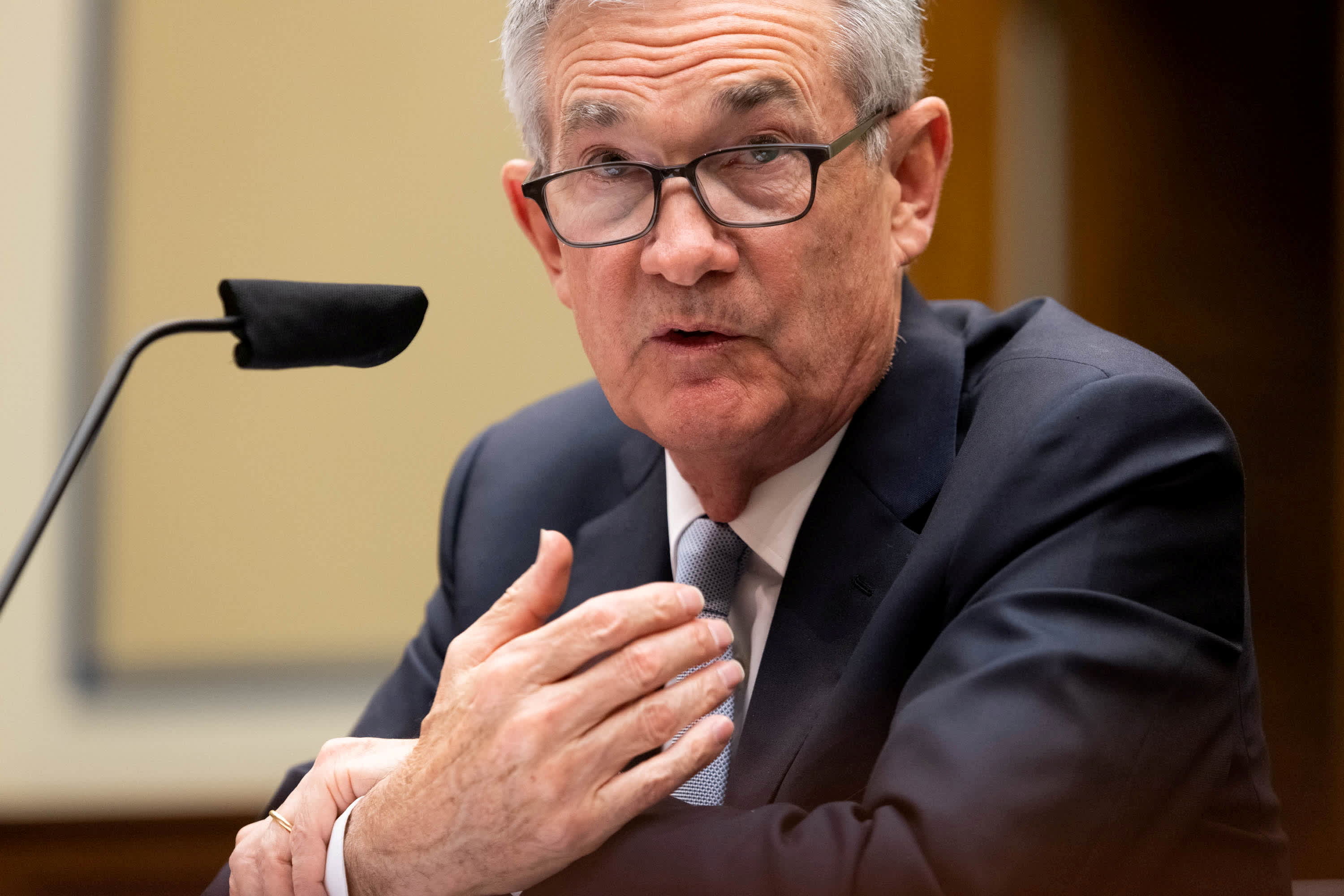
Federal Reserve Chair Jerome Powell testifies during a U.S. House Oversight and Reform Select Subcommittee hearing on coronavirus crisis, on Capitol Hill in Washington, June 22, 2021.
Graeme Jennings | Pool | Reuters
The U.S. Federal Reserve should tighten monetary policy at a faster pace in light of rising inflation risks, the International Monetary Fund said on Friday.
The Fed decided in early November to start tapering — which refers to a reduction in the amount of bonds it purchases — “later this month” at a pace of $15 billion every month. However, with the identification of a new Covid variant and inflation running above target, the IMF argued this pace should be accelerated.
“We see grounds for monetary policy in the United States — with gross domestic product close to pre-pandemic trends, tight labor markets, and now broad-based inflationary pressures — to place greater weight on inflation risks as compared to some other advanced economies including the euro area,” the IMF said in a blog post.
“It would be appropriate for the Federal Reserve to accelerate the taper of asset purchases and bring forward the path for policy rate increases.”
Speaking earlier this week, Fed Chairman Jerome Powell indicated that the central bank could step up its tapering efforts and that this would likely be discussed at a meeting this month.
Data released in November showed that the U.S. consumer price index rose 6.2% in October from a year ago — hitting its highest level in 30 years.
However, when it comes to raising interest rates, the Fed has said that market players should not interpret tapering as a sign of an imminent rate hike.
In this context, the IMF is asking central banks, not just the Federal Reserve, to communicate their plans clearly.
“It is essential for major central banks to carefully communicate their policy actions so as not to trigger a market panic that would have deleterious effects not just at home but also abroad,” the IMF said.
Not everyone believes central banks should speed up their tightening however.
Anne Richards, CEO of Fidelity International, on Tuesday urged policymakers to hold off on acting hastily.
“I do subscribe strongly to this view that it’s better to wait a month or two months and just be clear on the data path before acting. I think that is a lesser evil than acting prematurely to tighten,” she said.




